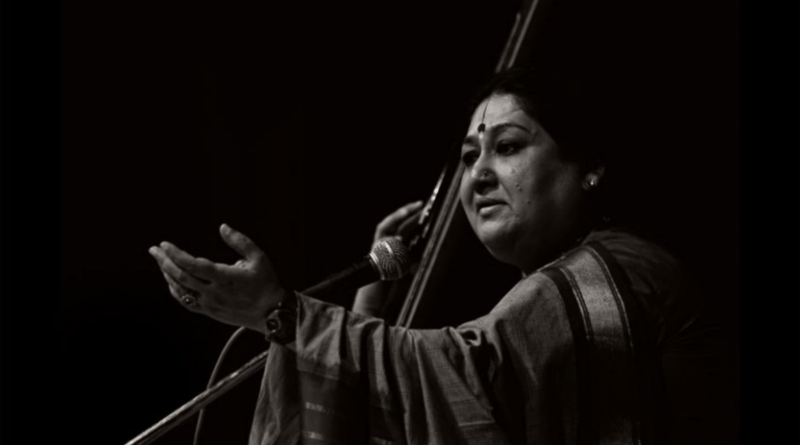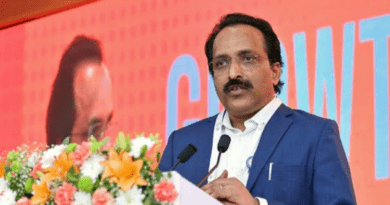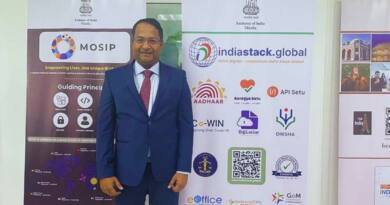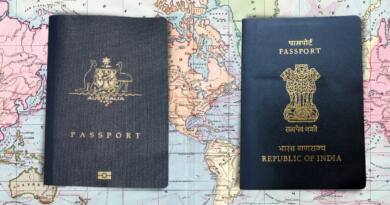“We need to inspire grateful listeners more than valuable artists.”
From October 6 to 8, Natya Tarangini will be the host of the Parampara series as part of its 27th annual celebration of classical music and dance. The prestigious festival, which was started by the veteran Kuchipudi dancers Drs. Raja Radha Reddy and Kaushalya Reddy, is a notable performing arts venue that attracts artists from a variety of genres.
Dr. Raja Reddy explained the background and significance of the festival, saying, “We started the Parampara festival many years ago to showcase our Indian treasures of dance, music, and arts. We wanted to teach the next generation about dance and music because our nation is well-known for its natya and sangeetam, in order to uphold the culture.
Despite the difficulties the pandemic in 2020 brought, Natya Tarangini quickly adjusted and held its last two festivals virtually. This change not only made it possible to reach a larger audience, but it also received a lot of positive feedback from viewers all over the world. But now that things are back to normal, the audience for this year’s event is live.
The pandemic’s good effects were discussed by Dr. Raja Reddy, who said, “Covid-19 actually benefited us a lot by allowing us to present our dancing online and widening our audience. Instead of being disappointed, I believe we should focus on the good. Additionally, the number of international students attending our school increased.
The goal of the Parampara series is to honour India’s “Gyanbhoomi,” a timeless ritual known as “Parampara.” The festival welcomes established artists to offer the audience a rich cultural experience. This year’s contestants include well-known vocalists Shubha Mudgal, Fareed Hasan Khan, and Mehboob Hussain Khan.
The festival was launched by renowned Indian classical performer Shubha Mudgal. The queen of Khayal and Thumri discussed her journey, her inspiration, the development of classical music, and much more in an interview with indianexpress.com. Read the shortened passages below:
My mother taught me many different types of compositions and melodies when I was younger, but I didn’t begin receiving formal music instruction until I was about 17 years old. She probably taught me one of my early compositions when she sang the well-known bhajan, “Thumaki chalat Ramchandra, bajat painjaniya,” by Tulsidas ji. She was a huge fan of Pt. DV Paluskar’s singing, and she taught me this bhajan using a composition that was one of his recordings.
She also imparted to me a love of folk music and taught me countless folk songs from Uttar Pradesh and the Kumaon region of Uttarakhand.
My parents, who are ardent devotees of Hindustani classical music, encouraged me to attend numerous mehfils and concerts of the genre in my hometown of Allahabad (now Prayagraj), and as a result, even before I started formal training in Hindustani classical music, I was able to recognise some ragas and had memorised a number of compositions in various ragas.
Do you believe classical music has changed throughout time?
Mudgal: Musicians who blazed new trails have demonstrated to us through their inventiveness that it is possible to respect tradition while also giving it a fresh interpretation. The evolution of music has been facilitated by their efforts as well as those of several scholars. There is no set formula for doing this, and each significant figure in Hindustani music has gone about it in their own unique way. Music students like me examine and study their work in the hopes of uncovering information that may aid our own path in the future.
How has your method of approaching your art evolved over time?
Mudgal: My parents and my gurus once pushed, cajoled, and reprimanded me to put in more effort and uphold riyaz discipline. I no longer require reminders because riyaz and the study of music are necessary components of my life, and I cannot live without them.
We were informed that you initially began studying dance before converting to music.
Mudgal: Since Kathak and Hindustani music have historically been linked together, my mother thought it would be a good idea for me to learn both of them. I got so enamoured with vocal music once I started learning it that I was unable to separate myself from it or regard it as a side interest. And very quickly, I made the decision to focus solely on learning vocal music because my official training had started relatively late and there was a lot to learn that other students typically learn in their early years.




